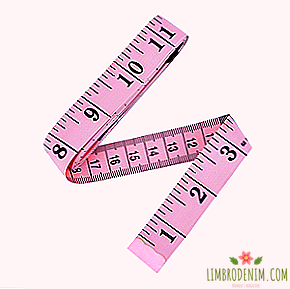Sexfree: How asexuals live and whether they need a relationship
“There’s something wrong with me,” Nina remarked when she was still in her teens. While all peers discussed sex and relationships, both the first and the other horrified her. Nina never wanted sex, although she could have a short platonic sympathy for people who shared her views and fit into her ideas about beauty (they were usually women, less often men). Nina tried to have sex when she was in a monogamous relationship - as a compromise. With men it was unpleasant and painful, with women it was tolerable, but no pleasure. After intercourse, sympathy was usually replaced by irritation.
Nina was tested for hormones, went to sexologists and psychotherapists - everything was fine, except that she still did not want to have sex and did not suffer from it. "I do not think sex is dirty, and integrity is a sign of holiness and sublimity. Let people have sex for health, just not with me," says Nina. She - aseksualka, and such as Nina, quite a lot. According to a British study in 2004, about 1% of all people on earth are asexual. Today, presumably, this figure can reach 3%. In 2021, a traditional population census will be held in the UK, for which for the first time they can make a definition of orientation as "asexual." Perhaps then we can get more accurate statistics.
What is asexuality?

Katya says that at the age of 19 she first had a partner who did not force her to have sex. “It quickly became clear that when no one initiates sex, I don’t even think about doing it. After sex, I was very uncomfortable and uncomfortable,” says Katya.
Asexuals are people who do not want to have sex with other people. As a rule, sex simply does not interest them. It is important to distinguish asexuality from celibacy, religious abstinence before marriage or anti-sexuality. (conscious decision to refuse sex for ethical or any other reasons. - Ed.).Unwillingness to have sex can be dictated by depression, post-traumatic disorder and other mental difficulties. Prosexuals (people who want sex and get pleasure from it. - Ed.) libido is often reduced due to a lack of testosterone, for example. Asexuals have normal hormonal indicators, and in general, they are mentally healthy. Simply put, their main difference is that a person who has health problems suffers from the inability to have sex, while asexuals do not. Many asexuals jokingly compare sex with a cake (the latter managed to become the unofficial symbol of the community): someone always loves sweets, someone eats it periodically, while others don’t tolerate the spirit. Others say, "Sex? No, thank you, I'd rather eat a piece of cake." This theme is actively played up in themed memes.
Asexuality is studied astonishingly little, but a 2013 study by Lorry Brotto of the University of British Columbia proves that asexuals are able to have an erection and release vaginal lubricant in response to certain stimulations, like all healthy people. “You know, I researched my device. Everything works fine, I even seem to be pleased. It’s just that I don’t feel any attraction,” joked one of the participants in a similar study Brotto.

Asexuals may even experience orgasms, they just do not bring them emotional satisfaction. Some asexuals enjoy masturbation, but for them it’s more likely to be a bodily discharge.

Asexuals may even experience orgasms, they just do not bring them emotional satisfaction. Some asexuals enjoy masturbation, but for them it works differently than for prosexual people — this is more of a body discharge on duty. They do not use images of familiar people or feel uneasy from watching porn. True, some of them have got the hand to masturbate on erotic stories - they are excited by the narrative, while they still do not feel the sexual attraction either to real or imaginary people. Vinay says that he uses erotic stories and comics for masturbation: "I am excited from the story itself, some kind of emotional tension. But I have an orgasm, not reaching the part where sex itself is described."
Formally, asexuality is still considered a deviation, and more specifically, a hypoactive sexual desire disorder, which, in turn, is included in the lists of the Diagnostic and Statistical Manual of Mental Disorders, for example, in the USA. However, the main local activist organization of asexuals AVEN (Asexuality Visibility and Education Network) is actively fighting this question.
AVEN provided a 75-page document with links to scientific studies, stating that asexuality should not be perceived as a disorder, but as an identity. This does not mean that the disorder itself does not exist, but only amends: not everyone who does not want to have sex has problems. By the way, according to Brotto's research, people with hypoactive sexual desire disorder had sex, kissed and entered into relationships much more often than people who defined themselves as asexuals.
Wide range

However, asexuality is not so straightforward. The community has a delineated spectrum, according to which people can define their sexuality. There are, for example, Gracesexuals - they can identify people who have a sexual desire, but quite rarely. Sexual identity is mobile, and yesterday's asexual can move to the gray zone and back.
Masha says that a few years ago she defined herself as an asexual: her sex was horrified and hurt (mostly moral). However, after she began dating her current girlfriend, her identity runs from a complete denial of sex to demisexuality (the emergence of sexual desire only after reaching a high level of emotional intimacy with a partner). "She revealed my sexuality. At first, I didn’t let her go to my body at all - I acted only in an active role and was glad that I could give her pleasure. But with her tactfulness, care and caution she showed that sex can be pleasant for me too ", - says Masha. She still has certain limitations as the host country, but her girlfriend is not embarrassed.
However, differences among asexuals exist not only in sex, but also in the way they see or do not see for themselves a romantic relationship, determine the attraction to a particular type of people. People who do not want to enter into a romantic relationship, call themselves aromatics. An aromatic can also be Gracesexual, that is, rarely have sex without engaging in monogamous or polyamorous relationships.

Among asexuals, there are many pan-romanticists, the latter attract the personal qualities of a person regardless of his gender and physiological characteristics. So Masha defines herself - now she is in a relationship with a girl, but before that she liked men too

Helen says that she has never fallen in love or experienced sexual attraction, but she is not in a hurry to label herself. "I do not call myself an aromatics and admit the possibility that in the future I can fall in love with someone. In my opinion, it would be a great experience. But if I never experience it, this is also not a problem." Nina in this sense is more categorical - she considers herself an aromant. Hates to touch naked areas of his body, kisses - all this can cause rejection. For her, only friendship is acceptable, and the traditional concept of romantic relationships annoys her: “I don’t like it when people constantly ask me to be around, to watch films in an embrace under a blanket, to walk by the hand, to take a bath together.”
However, the romance asexuals are also sufficient. As a rule, they enter into the usual, from the point of view of society, relationships, just do not have sex. Vika tells that she has been in a relationship with a man for quite a long time. He is a pro-sexual, she is an asexual, but they managed to reach a compromise: “I don’t like having sex, and at first he was very offended. everything that relates to foreplay, but not sex. From the side it looked like I deliberately “break off” him. " However, over time, she managed to convince her partner of her peculiarity, the original passion subsided, and now they rarely have sex - as a compromise. Fortunately, he does not cause Vika any suffering - she feels only indifference and boredom. Vika is a heterosexual asexual. But the community also has biomantiques, gomoromanticism, and so on.
Among asexuals, there are many pan-romanticists, the latter attract the personal qualities of a person regardless of his gender and physiological characteristics. So Masha defines herself - now she is in a relationship with a girl, but before that she liked men too. "Although, who knows, maybe I'm just a terry lesbian," she mocks.
Mirra considers herself to be ressexual at all - this concept is more popular in thematic communities, it is rare in the media. Resexuals do not accept sex on a psychological level, consider it alien to themselves and reject social and gender roles imposed by society. In general, we are talking more about a conscious rejection of sex than the lack of desire like asexuals. Mirra is happy in marriage - her husband also defines himself as a resex. They do not have sex, but they love kissing, hugging, expressing tenderness to each other in every way and fully agree on the relationship. "I am a supporter of sexfree - this is a direction that does not fight sex, but only spreads information that life without sex exists and it is quite pleasant and exciting," says Mirra.
Stigma and Quirplatica

Asexuals agree that they do not face such discrimination as, for example, the LGBT community. Usually they simply do not believe, advised to wait for true love, change partner or pose in sex and generally strive to reveal their sexual potential. In a world where mass culture is hypersexualized, and romance is inextricably linked with sex and is considered more important than everyone else, the community feels uncomfortable. A 2013 study shows that asexuals are more likely to be prone to depressive and anxious states because they are not taken seriously by society and do not fit into existing behaviors.
The problem is that asexuals are not so much. Finding a partner with a very low or absent interest in sex is quite difficult: you can only rely on online communities, and relationships with prosexuals often end up with a traumatic break. "I want a relationship, but so far I have decided to abandon this idea. Despite the fact that my former prosexual partner was very understanding, sex was a big problem for us," says Katya. The absence of sex still frustrated her boyfriend, and when the couple did deal with them as a compromise, she felt bad. “At first I suffered, then he felt ashamed in front of me, then again I was upset that I could not agree with him in temperament. It turned out an endless cycle of suffering that was easier to break,” the girl said. Kate came to the conclusion that the following relationship would be built only with an asexual, however, she did not particularly hope to find such a person quickly.
Alexander also admits that he is experiencing big problems with finding a partner because of his peculiarities. Girls attract him aesthetically, intellectually, but not sexually - because of this, he avoids dating. “Although I recently met an asexual girl, we just met on the Internet. It was surprisingly calm and easy. It gives a certain hope,” says Alexander. He says that in the depths of his soul he still wants a relationship, but he is not ready to include the sexual component in them.

Despite all the difficulties, the asexual community believes that their existence can completely turn our views on relationships, values and hierarchies.

The discussion about how sex should be associated with romance, exists not only among asexuals. Recently, a community of people who identify themselves as “Quirplatonists” has appeared. They may or may not love sex (that is, be asexuals and prosexuals), but they definitely avoid romantic relationships. Instead, they can build a long relationship with people in a purely platonic sense, such as friendship, partnership, or Boston marriage. Quirplatonics are the worst studied so far, but they also make one wonder what constitutes the foundation of strong relationships and whether sex is so important for a healthy partnership.
Despite all the difficulties, the asexual community believes that their existence can completely turn our views on relationships, their value and hierarchy. It's not that we talk too much about sex, explains Jay David, one of the pioneers of the AVEN movement, which now has tens of thousands of people. "The problem is that we fetish sex, equating it to the sum of all relationships that happen between people," says David. In his opinion, friendship and communication in communities are no less valuable than sexual or romantic relationships. They also need to discuss and explore. In his public speech, he says that talking about relationships is accepted only in monogamous couples, but it can be useful for friendship. "For example, discuss with your old friend how you spend friend's time on a friend, what you would like to do at this time and how your relationship develops," Jay suggests.
Asexuality opens our eyes to how we are all focused on sex, according to Al Pshibilo, a cultural analyst at York University in Canada, and offers another optics. If we stop praising only those relationships that include romance and sex, we can reconsider the concept of "lonely person." If we transfer some of the emotional forces to friendship, colleagues and like-minded people, then we will become more open to each other and begin to get rid of social stereotypes. Ideally, Pshibylo believes, we should stop treating our sexuality as something static, accept that its intensity depends on many factors, and not be shy about not having sex or doing it too much.
Photo:nasajob - stock.adobe.com, prapann - stock.adobe.com, Nataliia Pyzhova - stock.adobe.com





